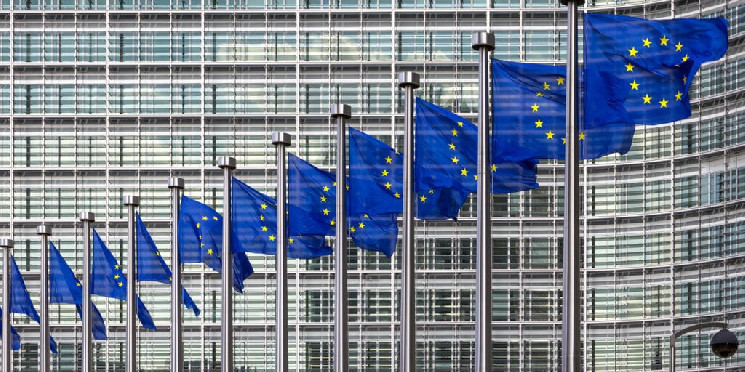The European Union is planning to track cryptocurrency transfers, according to remarks made by Eurogroup President Paschal Donohoe.
Speaking yesterday at the European Anti-Financial Crime Summit 2025, Donohoe, also Ireland’s Minister for Finance, discussed how the EU is working to apply long-standing AML regulation to crypto.
Specifically, the Eurogroup President explained that the EU seeks “to record data on the senders and recipients of funds [so it] now applies to crypto-asset service providers.”
Such an expansion of AML regulation is “essential” according to Donohoe, who added that the EU wants to move such regulation “beyond the more traditional forms of financial transfer” and allow for “the transparency of crypto asset transfers.”
His remarks come in the context of the EU’s rollout of its new Anti-Money Laundering Regulation (AMLR), which from July 1, 2027 onwards will prohibit cryptocurrency service providers from providing or interacting with anonymous wallets and privacy coins.
The new regulation will also require exchanges and other centralized entities (e.g. custodial wallets) to identify users of self-hosted wallets who use their services.
It therefore creates the conditions whereby EU agencies could track and identify any cryptocurrency transaction passing through a registered provider operating in the Union.
As the European Crypto Initiative explains in its summary of the AMLR, the incoming rules stipulate that EU member states “must ensure direct, immediate, and unfiltered access to the crypto-asset account data” for such agencies as Financial Intelligence Units and the EU-wide Anti-Money Laundering Authority, among others.
EU’s “intrusive” crypto checks
For many within the cryptocurrency industry, such provisions are “lopsided toward surveillance,” as Monero developer Riccardo Spagni told Decrypt.
As one of the key figures behind the privacy coin, Spagni argued that the AMLR introduces a blanket prohibition of “anonymity-enhanced” cryptocurrencies.
“From 1 July 2027, EU‑licensed exchanges and custodians will be barred from handling privacy coins such as Monero,” he said. “This goes well beyond the risk‑based approach normally applied to cash, prepaid cards, or even end‑to‑end‑encrypted messaging.”
Spagni also notes that the new regulations will require “intrusive checks” on self‑hosted wallets, with any transfer above €1,000 between a customer account and a self‑custodied wallet demanding that the service provider undertake verification.
The developer also argued that there’s no evidence the new regulations will meaningfully reduce crime.
“Criminals can still compile Monero’s open‑source code and trade peer‑to‑peer or via offshore venues,” he said. “What the rules really do is strip law‑abiding Europeans of a digital‑cash equivalent that protects them from data‑harvesting, stalking or commercial espionage.”
Perhaps more damningly, Spagni also pointed to a contradiction between the AMLR and Articles 7 and 8 of the EU Charter, guaranteeing privacy and data protection.
Because of this, he suggested that “legal challenges are almost inevitable,” and that a better compromise would be to mirror existing rules for cash, meaning that privacy coins would be permitted up to a reasonable ceiling.
Other industry participants are also wary of the new rules, with Unity Wallet COO James Toledano telling Decrypt that, while he supports “AML at the point of swapping or on or off-ramping,” he also warns that “the ethos of DeFi” is at risk of being corrupted or hindered by the regulations.
“While these rules match traditional banking standards, they don't fit well with crypto's decentralized structure,” he said. “Furthermore, they can and will be easily circumvented as self-custodial crypto is truly global and holders will find other ways of cashing out their chips.”
In Toledano’s view, the regulation is likely to affect regular users and developers too heavily, and the upshot may be to push parts of the cryptocurrency economy into “less transparent channels such as black or dark markets,” much like we saw in crypto’s infancy.
And Spagni argued that the imminent rules could result in a shrinkage of the EU cryptocurrency ecosystem.
“We’re already seeing pre‑emptive delistings,” he said, singling out crypto exchanges Binance and Kraken. “European traders will increasingly rely on decentralized exchanges, atomic swaps, and cross‑border peer‑to‑peer markets that sit outside EU licensing.”
A privacy-tech flight
At the same time, Spagni suspects that privacy‑tech start‑ups, cryptographers, and wallet providers will relocate to jurisdictions that see privacy as a feature, not a bug, “similar to how strong‑encryption talent left the US during the 1990s ‘crypto wars.’”
On the other hand, the AMLR may become a catalyst for technological advancement, albeit located mostly outside of the EU.
Spagni predicted “an acceleration of user‑friendly Layer‑2 bridges, threshold‑signature schemes and zero‑knowledge proof‑based KYC attestations aimed at restoring privacy without touching fiat on‑ramps.”
Edited by Sebastian Sinclair and Stephen Graves

